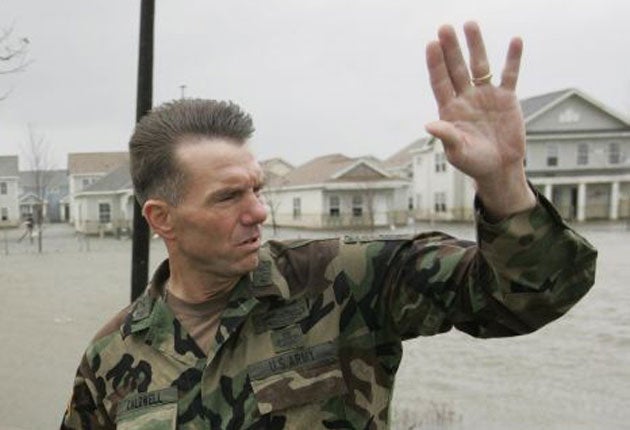Nato will 'transform' Afghan police security failures
American general promises quantity as well as improved quality

Your support helps us to tell the story
From reproductive rights to climate change to Big Tech, The Independent is on the ground when the story is developing. Whether it's investigating the financials of Elon Musk's pro-Trump PAC or producing our latest documentary, 'The A Word', which shines a light on the American women fighting for reproductive rights, we know how important it is to parse out the facts from the messaging.
At such a critical moment in US history, we need reporters on the ground. Your donation allows us to keep sending journalists to speak to both sides of the story.
The Independent is trusted by Americans across the entire political spectrum. And unlike many other quality news outlets, we choose not to lock Americans out of our reporting and analysis with paywalls. We believe quality journalism should be available to everyone, paid for by those who can afford it.
Your support makes all the difference.A "culture of poverty" in resources allocated to training the Afghan police force has created a major problem in Afghanistan needing urgent and sweeping reforms, a senior Nato commander declared yesterday.
The task of preparing the country's police force to take over security – a key plank of the West's exit strategy from the conflict – has been "very much under-resourced" with the quality of the men in uniform often being sacrificed in favour of churning out the numbers.
Lieutenant General Bill Caldwell, of the US Army, has been brought in under General Stanley McChrystal, the American commander of Nato forces, to oversee the training of Afghan security forces. Among the problems he discovered was that police officers were deemed to have qualified from their entrance courses "if they had been present on the first day and last day of their course. It had not mattered whether they had passed the tests in the course".
The police training process has been one of the glaring failures of the international community in setting up Afghanistan's law enforcement system. The task was initially given to Germany after the fall of the Taliban, but the programme they implemented was a version of the German police training system, proved unsuitable for local conditions and was abandoned as a failure.
The EU was then supposed to take the lead, but the training team remained grossly undermanned with many of those who did come not venturing out of Kabul. The situation was deemed to be so serious that Javier Solana, the EU foreign policy head and Carl Bildt, the Foreign Minister of Sweden, which holds the organisation's rotating presidency, sent a letter to the governments of the member states saying "It is essential that we redress this. All member states can do more. Delivering on our political commitments is a matter of EU credibility vis-à-vis the Afghan government and the entire international community."
The legacy of successive failures was a police force poorly equipped and paid with many members steeped in corruption using their uniforms and guns for extortion of the local population. Many dealt in drugs or were addicts. The rising incidence of police officers taking part in attacks against Western troops and officials – including the murders in November of five British soldiers by an Afghan policeman they were training – raised worries about just how much the Taliban has infiltrated the ranks.
Now, says Nato, a new training scheme backed by 20 countries, with trainers drawn from troop reinforcements being sent by Barack Obama and extra police officers arriving from Britain, are rectifying the mistakes of the past. The size of the Afghan force will rise from the current 89,000 to 109,000 by the end of October.
"We have changed things around," said Lt-Gen Caldwell. "Instead of just joining up, now they are trained before they are employed. We make sure they are more professional before they work among the people.
"We know there is a high level of illiteracy, so... instead we have more trainers and we are thorough in training them. Definite improvements have been made."
Join our commenting forum
Join thought-provoking conversations, follow other Independent readers and see their replies
Comments